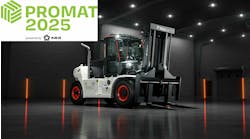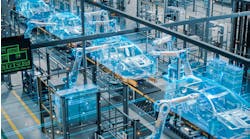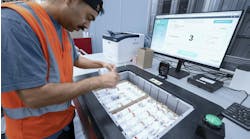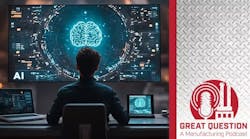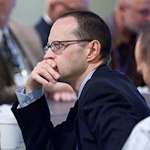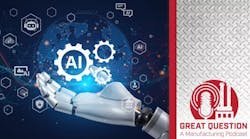Andrew Halonen, the president of Amatrium and the AmatriumGPT tool, has worked for 25 years in industries including machine design, automotive castings, engineering, forging, and lightweight materials. Andrew has a Bachelor of Science degree in Mechanical Engineering from Michigan Technological University and interned at Ford Motor Company before working for the 3M Company. Andrew spoke with Robert Brooks, editor-in-chief of American Machinist and Foundry Management & Technology, about new and inventive ways artificial intelligence is changing the manufacturing industry.
Below is an excerpt from the podcast:
RB: There's a distinction to be made between machine learning and other applications of artificial intelligence. The other application, of course, is what's referred to as large language models. And this is the basis of the well-recognized ChatGPT. Am I right to assume you are restarting a discussion here about the use of artificial intelligence in manufacturing?
AH: Let me say this. There's a lot of confusion around AI and business. Some people are tracking every detail, but most people that I reach out to in manufacturing aren't sure what to think of it. Is it a gimmick? Is it useful? Is it scary? Is it going to take my job? I even hear people say, “What is your AI strategy?” And I say, “The better question to ask is what problem are you aiming to solve.” Let's think of what the best tool is, and maybe AI is one of them. I'll even mention it to some of my clients, and they say, “If I hear the word AI from anybody else, I'm going to…” and then it's not very pleasant.
So, AI is very polarizing. Which is why we even removed it from our promotions. We don't talk about it. If you go to Amatrium.com, you don't see the word. You have to dig for it. Instead, we focus on the value which is largely around time savings. So again, we started in machine learning, and we learned a hard lesson. We scanned in a lot of high-quality data on aluminum castings, which is the world we know the best, and reached out to the die casters saying, “I have this prediction tool. You can put in your alloy, your temper, and it's going to push out properties.” Well naturally, they said, “Oh, that sounds fun. Let's go try it.” And they went, tried it with the alloys they were producing that day, and guess what? It didn't match. And now they won't return my phone calls. And that's why I say it's a painful lesson.
So why didn't that match? Well, if you step back and think about a metal casting foundry, when metal solidifies, what drove solidification? The geometry, the die life, the lubrications, the people that charge materials, there's all these things that are really pertinent to that process. So, on the machine learning side, we learned the lesson that the data that matters is your data, Mr. Customer, not a random scan of data. And so that's also a lesson in the large language models, right? When ChatGPT came out, people instantly had this phrase called hallucinations, which I call a used car salesman. It sounds elegant, eloquent, but it's wrong. And so why is that? Why is it wrong? Because they scanned the whole world, and then they tried to script an answer on, you know, extrudability of 7000 series alloys. So, with AmatriumGPT, how we solve that, we say, “Here. Load the data, your data. You trust it. You understand where it came from, and it's pertinent to your business.” And now when you ask a question, you get a great answer.

